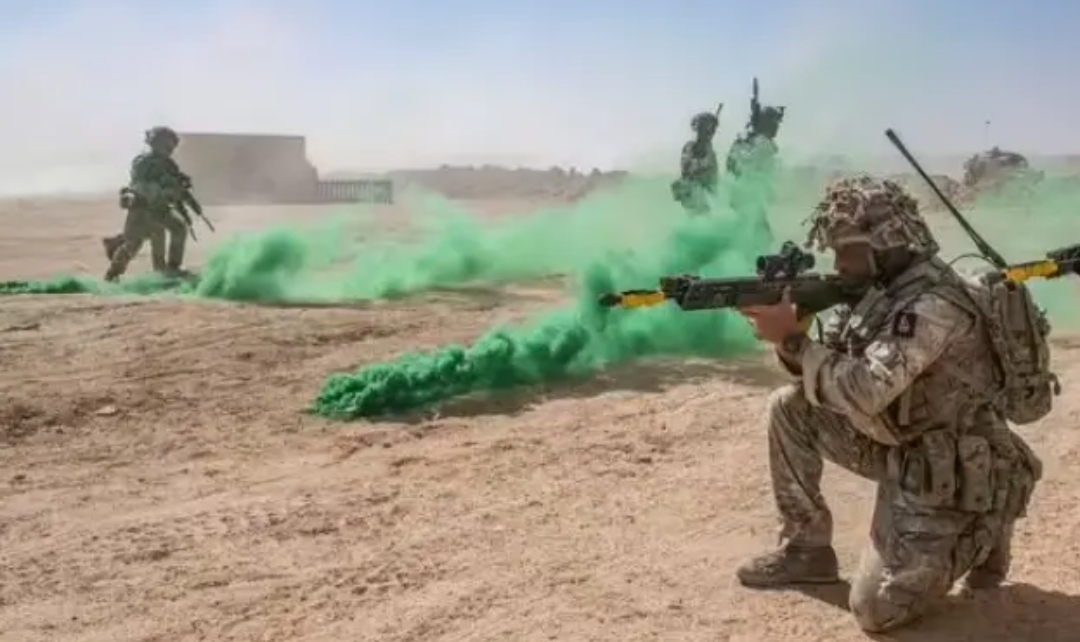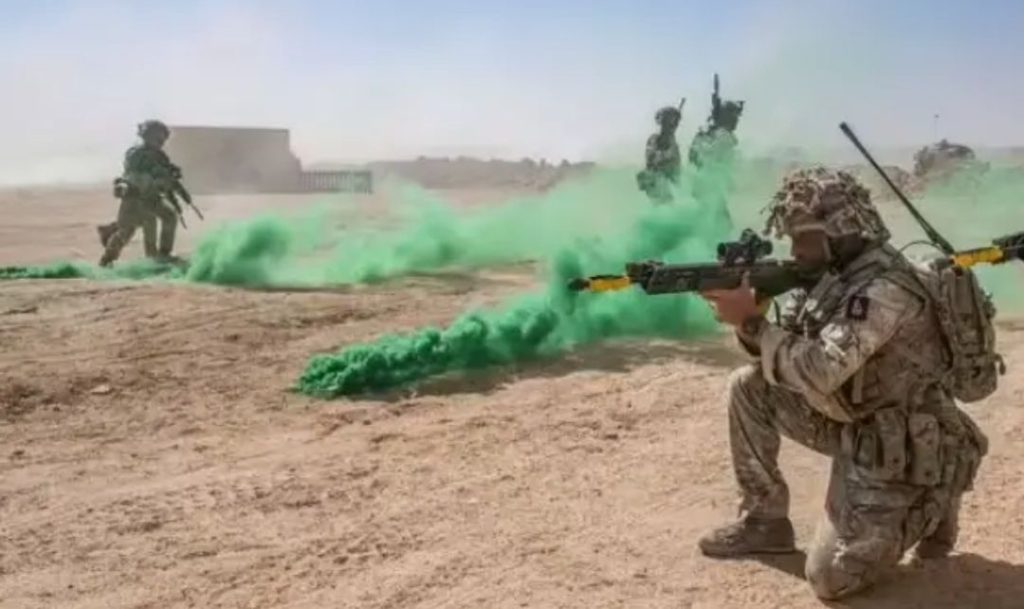
As the world grapples with heightened global tensions, the United Kingdom is set to assume a pivotal role in safeguarding the security of NATO allies. A recent announcement by Defence Secretary Grant Shapps reveals that British troops will spearhead Europe’s first line of defense in the event of a potential threat from Vladimir Putin. This significant responsibility comes as the UK takes command of NATO’s Very High Readiness Joint Task Force from January 2024.

According to a report by Express, shapps emphasizes the urgency of the situation, stating, “The world is a more dangerous and contested place than it has been for decades, and we need NATO more than ever.” This assertion underscores the gravity of the geopolitical landscape and the critical role NATO plays in maintaining global stability.
Highlighting the preparedness of the UK Armed Forces, Shapps declares, “The UK’s Armed Forces stand ready, at a moment’s notice, to defend our Allies and protect the British national interest.” The commitment to immediate response reflects the seriousness with which the UK approaches its role as a key player in NATO, especially as the alliance enters its 75th year.
Concerns have been raised that Vladimir Putin might target another NATO ally if his forces succeed in Ukraine, marking the most significant European land war since World War Two. This potential threat has led to thousands of British troops being placed on high alert, ready to deploy within days.
In response to speculation about the UK’s readiness, Lieutenant Colonel Ben Hawes asserts, “There’s no distraction. If I ask for it, I get it. I don’t feel like we’ve been under-resourced. Everything has been thrown at making sure we are completely credible.” This statement aims to dispel any doubts about the capability of the British military and reaffirms their commitment to maintaining credibility in the face of evolving challenges.
The leadership role the UK is poised to undertake is not without its critics. Reports from Germany earlier this year suggested concerns about the British Army’s size and its ability to lead NATO’s rapid reaction force. However, the UK remains resolute in its stance, with Shapps stating, “The UK is at the heart of NATO.”
One key component of the UK’s strategic approach is the Very High Readiness Joint Task Force (VJTF), established in 2014. This unit, capable of immediate deployment to any crisis, plays a crucial role in NATO’s rapid response capabilities. Despite some skepticism, British military officials assure that soldiers are accustomed to working with limited resources and are committed to maintaining credibility.
The 7th Light Mechanised Brigade Combat Team, also known as the ‘Desert Rats,’ will form the core of the UK forces leading NATO’s elite unit. Comprising a light cavalry regiment and four light-mechanised infantry battalions, along with enabling artillery, engineering, logistics, and medical regiments, this brigade represents a formidable force.
Major units within the 7th Light Mechanised Brigade Combat Team include the Royal Scots Dragoon Guards, the 4th battalion The Royal Regiment of Scotland, and the 2nd battalion the Royal Anglian Regiment. This diverse composition underscores the comprehensive capabilities of the brigade, ensuring a well-rounded and versatile response to potential threats.
Notably, this isn’t the first time the UK has led the task force; they previously assumed this role in 2017. Lieutenant Colonel Hawes reassures, “If I ask for it, I get it,” emphasizing the promptness and efficiency with which the UK military can mobilize resources when needed.
As the UK steps into this critical leadership position within NATO, it sends a clear message about its commitment to global defense. The geopolitical landscape may be evolving, but the resolve of the UK and its allies remains steadfast in the face of emerging challenges. With tensions escalating, the world watches closely as the British Army prepares to take on the responsibility of Europe’s first line of defense.




